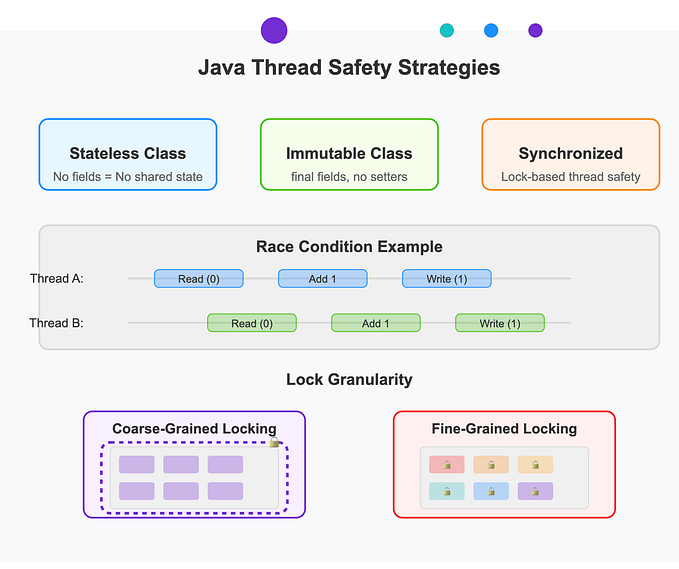Java 17 — Record Classes

Record is a special kind of class, designed to hold data with less boilerplate code. It’s a more concise way to define classes that only store data, removing the need for writing getters, setters, toString(), equals(), and hashCode() methods manually.
Here’s a comparison between your regular class and a Record class:
Regular class:
package com.prakash.version.java17.record.normalclass;
import java.util.Objects;
/**
* @author prakashkaruppusamy
*/
class Animal {
String name;
String animalType;
long runningSpeed;
// Constructor
public Animal(String name, String animalType, long runningSpeed) {
this.name = name;
this.animalType = animalType;
this.runningSpeed = runningSpeed;
}
// Getters
public String getName() {
return name;
}
public String getAnimalType() {
return animalType;
}
public long getRunningSpeed() {
return runningSpeed;
}
// toString() method
@Override
public String toString() {
return "Animal{" +
"name='" + name + '\'' +
", animalType='" + animalType + '\'' +
", runningSpeed=" + runningSpeed +
'}';
}
// hashCode and equals methods
@Override
public boolean equals(Object o) {
if (this == o) return true;
if (o == null || getClass() != o.getClass()) return false;
Animal animal = (Animal) o;
return runningSpeed == animal.runningSpeed &&
name.equals(animal.name) &&
animalType.equals(animal.animalType);
}
@Override
public int hashCode() {
return Objects.hash(name, animalType, runningSpeed);
}
}Record class
package com.prakash.version.java17.record;
/**
* @author prakashkaruppusamy
*/
public record Animal(String name, String animalType, long runningSpeed) {
}How Records make life easier:
1. Less Boilerplate: You don’t need to manually write getters, setters, toString(), equals(), or hashCode(). All of these are automatically provided by the Record class.
2. Immutability: Once you create a Record object, its state cannot change. This makes it simpler to work with, especially in multithreading scenarios.
3. Conciseness: You write less code, which means fewer bugs and easier maintenance.
package com.prakash.version.java17.record;
/**
* @author prakashkaruppusamy
*/
public class Main {
public static void main(String[] args) {
Animal lion = new Animal("Lion", "Mammal", 50);
// Accessing data
System.out.println("Animal Name: " + lion.name());
System.out.println("Animal Type: " + lion.animalType());
System.out.println("Running Speed: " + lion.runningSpeed());
// Using toString() automatically
System.out.println(lion); // Output: Animal[name=Lion, animalType=Mammal, runningSpeed=50]
}
}In summary, Records simplify your code by automatically generating most of the repetitive tasks involved in defining data-holding classes.










